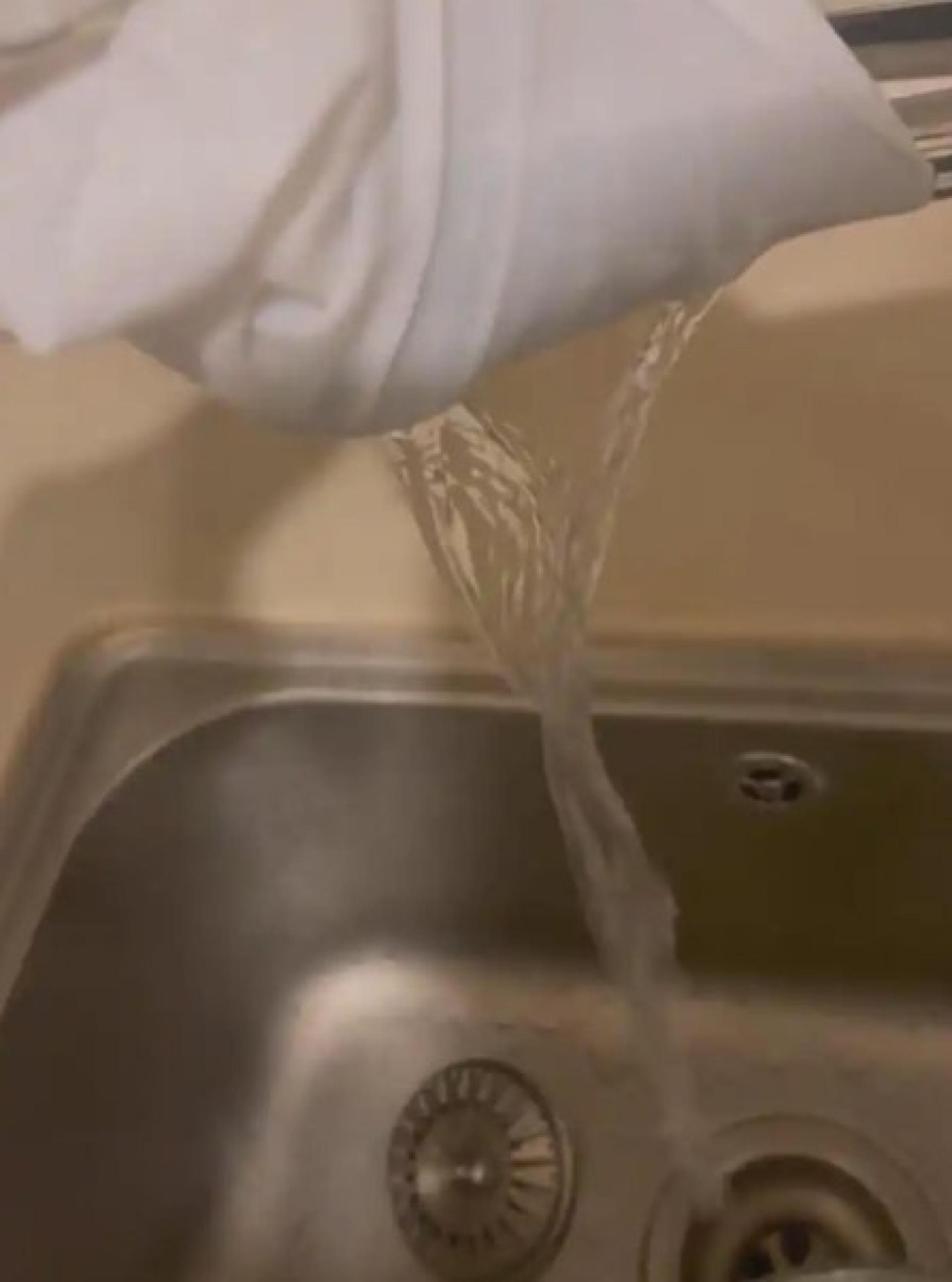(Hangzhou, 22nd) Last Wednesday (July 16), tap water in some areas of Hangzhou, China developed an unusual odor. A netizen is suspected of fabricating a false “police situation notice” claiming the odor was caused by sewage, and has been detained by police.
The Cybersecurity Bureau of China’s Ministry of Public Security said on its WeChat public account on Tuesday (July 22) that after investigation, the netizen surnamed Shao, in order to gain attention and attract eyeballs, published the fake “police situation notice” on online platforms, resulting in the widespread dissemination of the rumor. He has now been criminally detained by the local public security authorities according to law.
The Cybersecurity Bureau stated that after the incident of the tap water odor in Hangzhou, the netizen surnamed Shao circulated a false “police situation notice” online, falsely claiming that “sewage from the main urban district’s 13 water pipelines was connected to the sewage discharge network,” which triggered a large amount of public concern, discussion, and misunderstanding.
The public security authorities emphasize that the internet is not above the law. Those posting information or expressing opinions online must comply with laws and regulations and be responsible for their own words and actions. The police will continue intensifying efforts to crack down on online rumors, promptly publicize typical cases, deter illegal and criminal online activity, and safeguard a clean cyberspace.
Last week, tap water in some areas of Renhe Subdistrict and Liangzhu Subdistrict in Hangzhou’s Yuhang District had a pronounced odor. Some residents reported a foul smell and filtered out yellow unidentified substances on social media platforms.
According to an official notification following investigation, the abnormal odor in the tap water was caused by sulfur-containing ether compounds generated from anaerobic degradation of algae under specific natural climatic conditions. After sampling and analysis, an emergency response plan for sudden water supply incidents was immediately launched, the water source was switched, and water quality was effectively controlled. The factory output water is safe.
The Cybersecurity Bureau of China’s Ministry of Public Security said on its WeChat public account on Tuesday (July 22) that after investigation, the netizen surnamed Shao, in order to gain attention and attract eyeballs, published the fake “police situation notice” on online platforms, resulting in the widespread dissemination of the rumor. He has now been criminally detained by the local public security authorities according to law.
The Cybersecurity Bureau stated that after the incident of the tap water odor in Hangzhou, the netizen surnamed Shao circulated a false “police situation notice” online, falsely claiming that “sewage from the main urban district’s 13 water pipelines was connected to the sewage discharge network,” which triggered a large amount of public concern, discussion, and misunderstanding.
The public security authorities emphasize that the internet is not above the law. Those posting information or expressing opinions online must comply with laws and regulations and be responsible for their own words and actions. The police will continue intensifying efforts to crack down on online rumors, promptly publicize typical cases, deter illegal and criminal online activity, and safeguard a clean cyberspace.
Last week, tap water in some areas of Renhe Subdistrict and Liangzhu Subdistrict in Hangzhou’s Yuhang District had a pronounced odor. Some residents reported a foul smell and filtered out yellow unidentified substances on social media platforms.
According to an official notification following investigation, the abnormal odor in the tap water was caused by sulfur-containing ether compounds generated from anaerobic degradation of algae under specific natural climatic conditions. After sampling and analysis, an emergency response plan for sudden water supply incidents was immediately launched, the water source was switched, and water quality was effectively controlled. The factory output water is safe.
